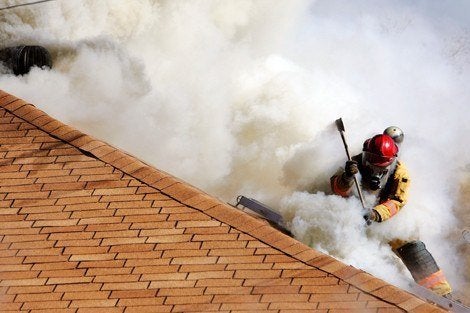For immediate release: February 13, 2014
Boston, MA – A six-year-old Massachusetts law requiring that only “fire-safe” cigarettes (FSCs) be sold in the state appears to decrease the likelihood of unintentional residential fires caused by cigarettes by 28%, according to a new study by Harvard School of Public Health (HSPH) researchers.
The study will appear online February 13, 2014 in the American Journal of Public Health.
“This study is the first rigorous population-based study to evaluate the effectiveness of the fire-safe cigarette standards, and shows that science-based tobacco product regulation can protect the public health,” said lead author [[Hillel Alpert]], research scientist at the Center for Global Tobacco Control at HSPH.
Burning cigarettes left smoldering on a bed, furniture, or other flammable material are a leading cause of residential fires in the United States, generating hundreds of millions of dollars each year in property damage, health care costs, lost productivity, death, and injuries. Young children, seniors, African Americans, Native Americans, the poor, people living in rural areas or in substandard housing, and firefighters are especially at risk.
To evaluate the effectiveness of Massachusetts’ Fire Safe Cigarette Law, the researchers analyzed seven years of data from 2004 to 2010 on accidental residential fires, including 1,629 caused by cigarettes. The information was reported to the Massachusetts Fire Incident Reporting System, a system maintained by the Massachusetts Department of Fire Services.
The results appear to show that the likelihood of unintentional residential fires caused by cigarettes decreased by 28% after the Massachusetts law was enacted in 2008. The largest reductions were among cigarette fires in which human factors, such as falling asleep while smoking, were involved, and among fires that were ignited on materials, which are the scenarios for which the standard was developed.
“This study confirms that the fire standard compliant (FSC) cigarette law has reduced the number of fires from cigarettes started by igniting furniture and bedding as it was designed to do,” said Massachusetts Fire Marshal Stephen Coan.
“We now have the science to support that all tobacco companies throughout the world should voluntarily make their cigarettes less likely to ignite fires,” said [[Gregory Connolly]], professor of the practice of public health and director of the HSPH Center for Global Tobacco Control.
Funding for the study was provided by an HSPH Merit Award and by National Cancer Institute grants 3R01 CA125224-03s1rev++ and 2R01 CA087477-09A2.
“Effectiveness of the Cigarette Ignition Propensity Standard in Preventing Unintentional Residential Fires in Massachusetts,” Hillel R. Alpert, David Christiani, E. John Orav, Douglas W. Dockery, Gregory N. Connolly, American Journal of Public Health, online February 13, 2014
For more information:
Marge Dwyer
617.432.8416
mhdwyer@hsph.harvard.edu
photo: iStockphoto.com
###
Harvard School of Public Health brings together dedicated experts from many disciplines to educate new generations of global health leaders and produce powerful ideas that improve the lives and health of people everywhere. As a community of leading scientists, educators, and students, we work together to take innovative ideas from the laboratory to people’s lives—not only making scientific breakthroughs, but also working to change individual behaviors, public policies, and health care practices. Each year, more than 400 faculty members at HSPH teach 1,000-plus full-time students from around the world and train thousands more through online and executive education courses. Founded in 1913 as the Harvard-MIT School of Health Officers, the School is recognized as America’s oldest professional training program in public health.
